
Environment Protection Engineering
Scope & Guideline
Fostering Innovation for a Cleaner Planet
Introduction
Aims and Scopes
- Environmental Engineering Solutions:
The journal publishes research aimed at developing innovative engineering solutions for environmental protection, including wastewater treatment, solid waste management, and air quality improvement. - Pollution Assessment and Management:
Research focusing on the assessment of pollutants in different environmental matrices (e.g., air, water, soil) and the development of strategies for their management and remediation. - Sustainable Resource Management:
Studies that explore sustainable practices in resource management, including waste recycling, recovery, and the use of alternative materials in engineering applications. - Ecological Restoration and Conservation:
Research contributions that address ecological restoration efforts and conservation strategies, particularly in areas impacted by industrial activities or urbanization. - Technological Innovations in Environmental Protection:
The journal highlights new technologies and methodologies aimed at improving environmental protection efforts, including advanced materials, nanotechnology, and modeling techniques.
Trending and Emerging
- Artificial Intelligence and Machine Learning Applications:
A notable trend is the increasing use of AI and machine learning algorithms for environmental predictions and assessments, showcasing innovative approaches to complex environmental problems. - Advanced Water Treatment Technologies:
Research on advanced water treatment technologies, including membrane processes and hybrid systems, is gaining traction, reflecting the need for efficient and effective solutions in water quality management. - Climate Change Mitigation Strategies:
The journal is seeing a rise in studies addressing climate change mitigation, particularly through carbon management and innovative approaches to reducing greenhouse gas emissions. - Ecological and Environmental Risk Assessments:
There is a growing focus on comprehensive ecological risk assessments, particularly in relation to heavy metal contamination and toxicological studies, emphasizing the need for integrated environmental management. - Sustainable Urban Development Practices:
Emerging research themes include sustainable urban development practices that incorporate environmental protection measures, highlighting the interaction between urbanization and ecological sustainability.
Declining or Waning
- Traditional Waste Management Practices:
There appears to be a decreasing emphasis on conventional waste management practices, such as landfilling, as researchers increasingly explore more innovative and sustainable approaches to waste treatment and resource recovery. - Basic Environmental Monitoring Techniques:
Research focusing solely on basic environmental monitoring techniques without the integration of advanced technologies or methodologies is becoming less frequent, as the field shifts towards more complex and comprehensive assessment methods. - Single-Factor Studies in Pollution Control:
There is a noticeable decline in studies that analyze pollution control from a single-factor perspective, with a growing preference for multi-disciplinary and systems-based approaches that consider various interacting factors.
Similar Journals
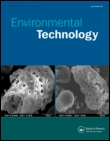
ENVIRONMENTAL TECHNOLOGY
Advancing Sustainable Solutions for a Greener TomorrowENVIRONMENTAL TECHNOLOGY, published by Taylor & Francis Ltd, is a prominent journal that serves as a crucial platform for disseminating pioneering research in the multifaceted fields of Environmental Science, Water Science and Technology, and Waste Management. With an impressive record spanning over three decades from 1990 to 2024, the journal holds significant rankings in various categories, including Q3 in Environmental Chemistry and Q2 in both Medicine (miscellaneous) and Water Science and Technology for 2023. Its Scopus rankings further position it within the top tiers of Environmental Science disciplines, reflecting its influence and relevance, particularly as it pertains to pressing global environmental challenges. While the journal does not offer an open access option, it remains dedicated to advancing knowledge and promoting innovative solutions among researchers, professionals, and students engaged in environmental studies. As it continues to attract high-quality submissions, ENVIRONMENTAL TECHNOLOGY plays a vital role in shaping future research and practices aimed at sustainable environmental management.
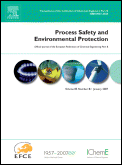
PROCESS SAFETY AND ENVIRONMENTAL PROTECTION
Fostering interdisciplinary solutions for a sustainable future.PROCESS SAFETY AND ENVIRONMENTAL PROTECTION, published by Elsevier, is a premier academic journal dedicated to advancing the fields of chemical engineering, environmental science, and safety management. With an impressive impact factor, this esteemed journal undergoes a meticulous peer-review process and serves as a vital platform for researchers, professionals, and students seeking to disseminate cutting-edge research and innovative practices. Submissions are welcome in a wide scope of topics related to safety, risk, reliability, and environmental engineering, demonstrating its influence as a Q1 journal across multiple categories, including Environmental Chemistry and Safety, Risk, Reliability and Quality. By providing a rigorous analysis of current challenges and solutions in the domain since its inception in 1990, it continues to foster interdisciplinary collaboration and practical applications in the United Kingdom and beyond. With the journal not currently offering Open Access options, subscribers gain exclusive access to pivotal insights that shape industry standards and drive advancements in sustainable practices.
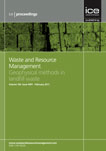
Proceedings of the Institution of Civil Engineers-Waste and Resource Management
Empowering Research and Dialogue in Waste ManagementProceedings of the Institution of Civil Engineers-Waste and Resource Management is a pivotal journal published by Emerald Group Publishing Ltd, dedicated to advancing knowledge in the fields of civil and structural engineering as well as waste management. With an ISSN of 1747-6526 and an e-ISSN of 1747-6534, this journal has been instrumental in facilitating the exchange of innovative research and best practices from 2008 through 2024. Although it currently ranks in the lower quartiles (Q4) in its categories, its commitment to enhancing sustainable practices in engineering makes it a valuable resource for researchers, professionals, and students alike. The journal aims to foster multidisciplinary dialogue and provide insights into effective waste management solutions and resource optimisation techniques, critical for today's environmental challenges. With a geographic focus in the United Kingdom and an accessible platform for contributions, this publication is positioned to play an essential role in shaping the future of sustainable engineering practices.
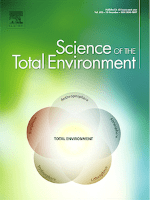
Science of The Total Environment
Uncovering Solutions for a Healthier PlanetScience of The Total Environment, an esteemed journal published by Elsevier, holds a significant position in the field of environmental science, encompassing critical areas such as Environmental Chemistry, Environmental Engineering, Pollution, and Waste Management and Disposal. With an impressive impact factor and ranked in the Q1 quartile across its categories for 2023, the journal is recognized for its high-quality research output and contribution to environmental sustainability. Operating from its base in the Netherlands, the journal has been a valuable resource since its inception in 1972, welcoming innovative studies that address complex environmental challenges. Its notable rankings—such as Rank #9 in both Environmental Sciences and Pollution—underscore its relevance and influence in the academic community. Although the journal currently does not provide an open access option, the robust findings and discussions presented within its pages continue to foster a deeper understanding of environmental issues. Science of The Total Environment is an essential platform for researchers, professionals, and students dedicated to advancing knowledge and solutions in the rapidly evolving field of environmental science.
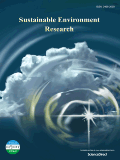
Sustainable Environment Research
Advancing sustainability through innovative research.Sustainable Environment Research, an esteemed journal published by BMC, serves as a pivotal platform for disseminating innovative research in the fields of Environmental Engineering, Pollution, and Renewable Energy. Established in 2016 as an Open Access journal, it facilitates the widespread sharing of knowledge and advancements across the globe, reflecting its commitment to enhancing environmental sustainability. With an impressive Q1 ranking in multiple categories, including Water Science and Technology and Pollution, the journal is recognized for its significant impact, currently holding a rank of 31st in Environmental Science - Water Science and Technology. The journal actively invites researchers, professionals, and students to contribute to crucial discussions around sustainable practices and technologies, thus addressing worldwide environmental challenges. Based in Taiwan but accessible internationally, Sustainable Environment Research provides a valuable resource for those dedicated to advancing the science of sustainability.

Rocznik Ochrona Srodowiska
Fostering Interdisciplinary Dialogue in Environmental ResearchRocznik Ochrona Srodowiska, published by the Middle Pomeranian Scientific Society for Environmental Protection, is an esteemed journal dedicated to advancing the field of environmental science in Poland and beyond. With an ISSN of 1506-218X, this peer-reviewed journal has established itself as a vital resource since its inception in 2007, addressing various environmental issues and promoting sustainable practices. Currently holding a Q3 category ranking in the Environmental Science (miscellaneous) field for 2023, it places itself in the 23rd percentile of Scopus rankings, reflecting a growing influence in the broader environmental research community. While the journal is not open access, it serves as an important conduit for researchers, professionals, and students to disseminate their findings and contribute to the interdisciplinary dialogue aimed at tackling pressing environmental challenges. With a commitment to rigorous research and practical applications, Rocznik Ochrona Srodowiska remains an essential platform for fostering innovation and collaboration in environmental studies.
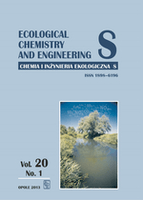
Ecological Chemistry and Engineering S-Chemia I Inzynieria Ekologiczna S
Unveiling Sustainable Strategies in Chemistry and EngineeringEcological Chemistry and Engineering S, a prominent journal in the field of Environmental Chemistry and Engineering, provides a platform for innovative research and critical discussions surrounding ecological solutions and sustainable practices. Published by SCIENDO, this peer-reviewed journal is accessible to researchers and professionals dedicated to advancing our understanding of ecological systems and sustainable engineering practices. With an ISSN of 1898-6196 and an E-ISSN of 2084-4549, the journal has established itself in the academic community, reflected by its Q3 ranking in both Environmental Chemistry and Environmental Engineering categories as of 2023. Covering significant advancements from 2008 to 2024, it serves as an essential resource in advancing knowledge and fostering collaborations within interdisciplinary fields. Despite not offering open access, the journal remains an invaluable resource for researchers and students aiming to contribute to ecological sustainability strategies worldwide.

Resources Environment and Sustainability
Driving Impactful Change Through Rigorous ResearchResources Environment and Sustainability is a premier academic journal published by ELSEVIER, dedicated to advancing knowledge in the fields of environmental science, engineering, and sustainability practices. Recognized for its rigorous peer-review and high-quality research, the journal boasts an impressive impact factor and consistently ranks in the first quartile across multiple categories, including Environmental Engineering, Environmental Science, Management, Monitoring, Policy and Law, and Pollution. With its Scopus rankings placing it among the top journals—#7 in Environmental Science and #12 in Environmental Engineering—this journal provides a vital platform for researchers, professionals, and students seeking to contribute to evolving policies, innovative management strategies, and cutting-edge environmental solutions. Hosted in the Netherlands, Resources Environment and Sustainability is committed to fostering interdisciplinary dialogue and disseminating high-impact research that addresses the pressing challenges of our times. This journal embraces open access principles, ensuring that the wealth of knowledge it publishes remains accessible to a global audience.

Engenharia Sanitaria e Ambiental
Elevating standards in environmental science education.Engenharia Sanitaria e Ambiental is a distinguished journal published by the Associação Brasileira de Engenharia Sanitária e Ambiental and has been an influential resource in the fields of sanitation and environmental engineering since its inception. With an Open Access format established in 2004, it ensures that invaluable research is freely accessible to a global audience, supporting the dissemination of knowledge and innovation. Based in Brazil, the journal addresses critical issues surrounding waste management and environmental sustainability, contributing significantly to the discourse in these areas. Although currently ranked in Q4 within its category as of 2023, it serves as a platform for emerging research and aims to elevate the standards of environmental science education and practice. Researchers, professionals, and students alike benefit from its commitment to enhancing the understanding of sanitary and environmental challenges, making it an essential resource for those striving to contribute to a healthier and more sustainable world.
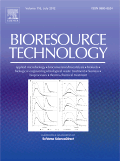
BIORESOURCE TECHNOLOGY
Transforming Challenges into Opportunities in Environmental EngineeringBioresource Technology, published by Elsevier Science Ltd, is a leading journal in the fields of bioengineering, environmental engineering, and sustainable resource management. With an impressive impact factor reflected in its Q1 rankings for 2023 across multiple relevant categories, it stands out as a premier source for groundbreaking research from its inception in 1991 to its anticipated contributions through 2024. Bioresource Technology promotes the advancement of technologies and methodologies aimed at the sustainable utilization of biological resources, playing a pivotal role in tackling the challenges of waste management, renewable energy, and environmental protection. Researchers and practitioners are encouraged to contribute and engage with high-quality studies that have significant implications for the global push towards sustainability and innovation. Although the journal does not currently offer Open Access, its subscription model ensures that the rigorous peer-reviewed content remains accessible to those dedicated to advancing the field.